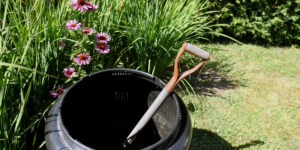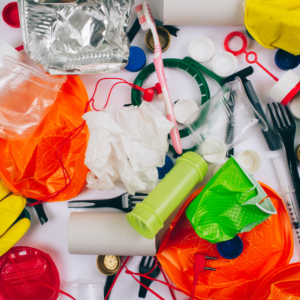5 Simple Ways to Go Greener at Home
In today’s world, sustainability is more than just a trend—it’s a crucial way of life. By adopting small changes at home, we can collectively reduce our environmental footprint and make a significant positive impact on the planet. Whether you’re just beginning your eco-friendly journey or are already embracing sustainable habits, here are 5 simple ways to go greener at home that can make a big difference. Let’s create a healthier environment for ourselves and future generations.
1. Swap to Energy-Efficient Lighting
One of the simplest and most effective ways to go greener at home is to replace traditional light bulbs with energy-efficient LED bulbs. LED lights use up to 75% less energy and last significantly longer than incandescent bulbs, which means fewer replacements and reduced waste. Not only will you save energy, but you’ll also see a reduction in your electricity bill.
Additional Tips:
- Use dimmable LED lights to reduce energy use even further.
- Install smart lighting systems to turn off lights automatically when not in use.
Related Product: Philips LED Dimmable Bulbs
Related Blog Post: 8 ways to Save Energy with Smart Lighting Solutions
2. Reduce Single-Use Plastics
Another impactful change you can make is to reduce single-use plastics in your household. Start by swapping plastic grocery bags for reusable canvas bags and replacing plastic water bottles with stainless steel or glass water bottles. Every small step counts when it comes to reducing plastic pollution, which is one of the biggest threats to marine ecosystems today.
Additional Tips:
- Store food in glass containers instead of plastic bags or cling film.
- Consider switching to solid soap and shampoo bars to avoid plastic packaging.
Related Product: Stainless Steel Water Bottle
Related Blog Post: Top 10 Ways to Cut Down on Single-Use Plastics
3. Embrace Water Conservation
Water is a precious resource, and simple changes at home can lead to significant savings. Install low-flow showerheads and faucet aerators to reduce water consumption without sacrificing comfort. Fixing leaky faucets and using efficient appliances also help conserve water.
Additional Tips:
- Run your washing machine and dishwasher only with full loads.
- Consider planting a native garden that requires minimal watering.
Related Product: Low-Flow Showerhead
Related Blog Post: 10 Tips For Conserving Water at Home
4. Compost Food Waste
Composting is a great way to reduce waste and create nutrient-rich fertilizer for your garden. Instead of throwing away vegetable scraps, coffee grounds, and fruit peels, use them to create compost. You can easily start a compost bin indoors or in your backyard, turning kitchen waste into valuable soil that benefits your plants.
Additional Tips:
- Keep a small compost bin in your kitchen for easy access to food scraps.
- Avoid composting meats or oils, as these can attract pests.
Related Product: Indoor Compost Bin
Related Blog Post: Beginner’s Guide to Composting at Home
5. Switch to Eco-Friendly Cleaning Products
Many traditional cleaning products contain chemicals that are harmful to both the environment and our health. Switching to eco-friendly, biodegradable cleaning products reduces pollution and helps keep toxic substances out of waterways. You can also make your own natural cleaners using ingredients like vinegar, baking soda, and lemon.
Additional Tips:
- Use microfiber cloths instead of paper towels to reduce waste.
- Opt for concentrated cleaning solutions to reduce packaging.
Related Product: Mrs. Meyer’s Clean Day Multi-Surface Cleaner
Related Blog Post: 6 DIY Natural Cleaning Products You Can Make at Home
Final Thoughts
Going greener at home doesn’t have to be complicated. By making these simple changes, you can significantly reduce your impact on the environment and contribute to a healthier planet. Every action counts, and your choices today will help build a sustainable future for generations to come.






